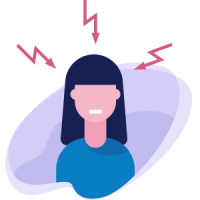Trademarks are owned by or licensed to the Aspen Group of companies.
© 2024 Aspen Group of companies or its licensor. All rights reserved. Pharmacare Limited. Co. Reg. No.: 1898/000252/06. Healthcare Park, Woodlands Drive, Woodmead, 2191. Hotline: 0800 122 912. www.aspenpharma.com
ZAR-DOX-07-24-00002 07/2024

Unfortunately, our website is temporarily down for scheduled maintenance.
We will be back soon.

To report an Adverse Event or Adverse Drug Reaction, please contact Aspen on:
Tel: 0800 118 088
Email: drugsafety@aspenpharma.com

To report a Product Quality Complaint, please contact Aspen on:
Tel: 011 239
6309 / 011 239 6310
Email: QAComplaints@aspenpharma.com

Please contact Aspen Communication Centre (ACC) to confirm stock availability:
Tel: 0800 122 912
Email: acc@aspenpharma.com
